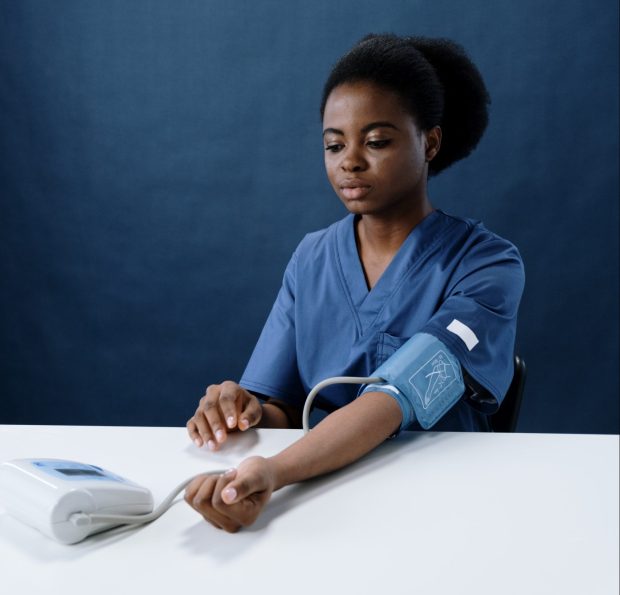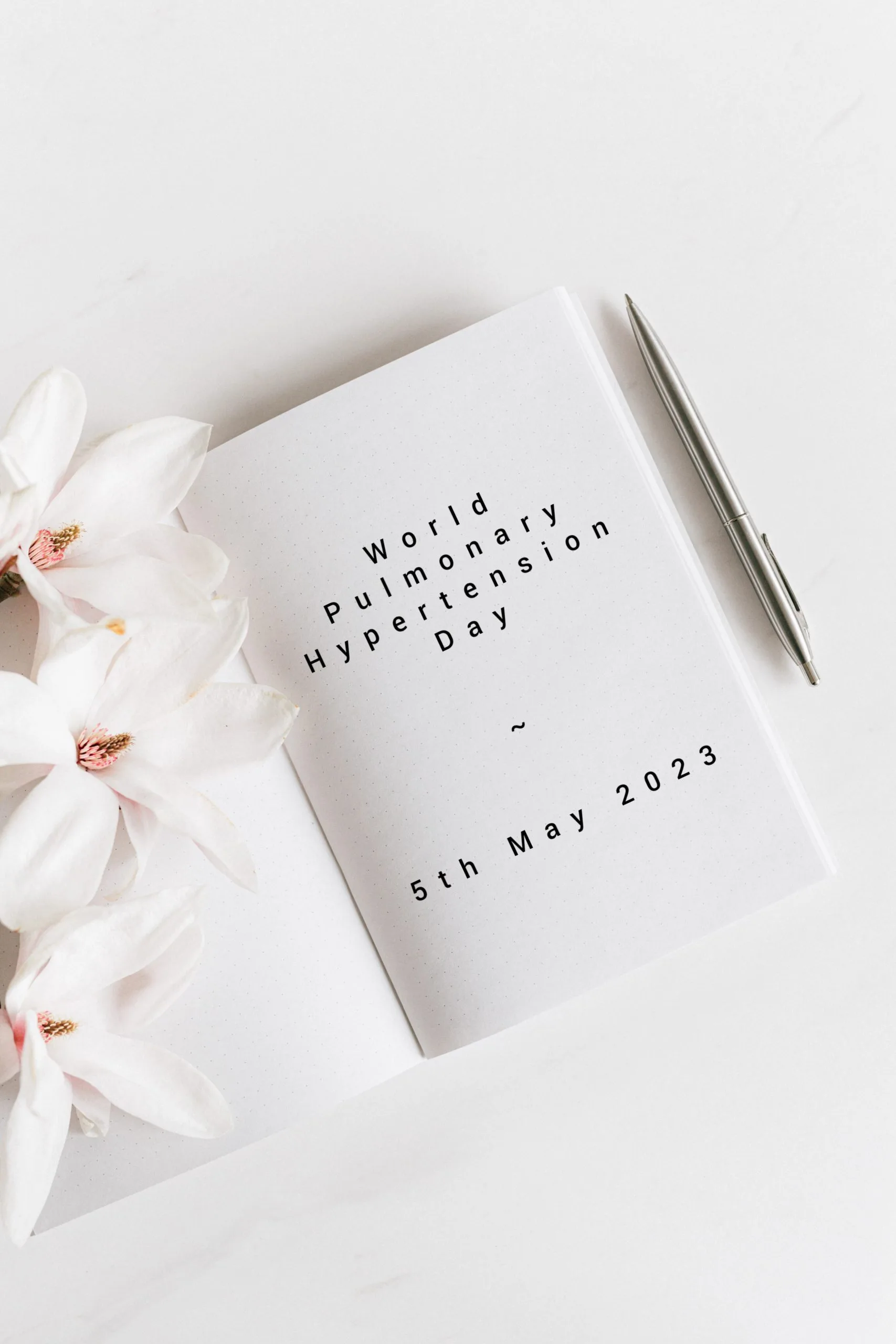World Pulmonary Hypertension Day was on the 5th of May. The primary goal of this day is to raise awareness of this poorly understood and frequently misdiagnosed disease. This is something the Jenna Lowe Trust and the Pulmonary Hypertension Association of South Africa (PHASA) aim to do together.
What Is Pulmonary Hypertension?
Pulmonary hypertension is a rare, progressive form of high blood pressure that affects the pulmonary arteries. They are responsible for carrying oxygen-poor blood from your heart to your lungs.
Unlike regular hypertension, where the arteries throughout your body are constricted, it primarily impacts the blood vessels in the lungs and right side of the heart. People impacted by this experience continuous high blood pressure in the lungs, which can lead to an enlargement of the heart and subsequent heart failure.
The Heart’s Role
The heart pumps oxygen-poor blood to the lungs, which enables it to take up oxygen. This is why the heart beats faster when you are physically active, as this makes the transportation of oxygen to the muscles faster. While this is happening, the blood vessels responsible for carrying blood to the lungs expand. This stretch allows them to allow more blood through. However, this isn’t the case for those with pulmonary hypertension. Since their pulmonary walls are thicker, they are less able to stretch, making the right side of the heart work harder to pump blood. This leads to an increase in lung blood pressure.
Symptoms
Symptoms of this disorder arise due to high blood pressure in the veins and arteries of the lungs. The restricted blood flow compromises blood circulation throughout the whole body due to low oxygen saturation and decreased cardiac output. Symptoms typically include:
- Breathlessness is one of the most common symptoms
- Dyspnea and fatigue, other common initial symptoms
- Chest pain, especially during physical activity
- Dizziness and light-headedness
- Fainting
- Swollen legs, feet, or abdomen
- Heart palpitations
Is There A Cure?
There is currently no cure for pulmonary hypertension. However, treatment is available to improve signs and symptoms and slow the progression of the disease. While treatment options depend on the severity of the disorder, the options include:
- Oxygen treatment: Involves inhaling air with a higher oxygen concentration
- Diuretics: Remove excess fluid from the body caused by heart failure
- Digoxin: Can improve symptoms by strengthening heart muscle contractions and slowing down your heart rate
- Transplants: In severe cases where medicine hasn’t been an effective treatment, a lung or heart-lung transplant may be needed.
How Common Is It?
While to date, the true global burden of pulmonary hypertension remains unknown, it is estimated that about 50-70 million individuals are affected by it.
Dr. Gerald Maarman from the Centre for Cardio-Metabolic Research in Africa at Stellenbosch University shares how research shows that the prevalence of pulmonary hypertension in Africa can range from 10% to 68%. A study found that in South Africa, the disorder accounted for 31% of total cardiovascular deaths, with the reasons for the high mortality rates including lack of access to healthcare, infrastructure, and diagnosing equipment.

Photo by Cottonbro Studio on Pexels
The Jenna Lowe Trust
One of the most prominent figures in pulmonary hypertension awareness in South Africa is Jenna Lowe. In 2014, just 2 years before her 21st birthday, she launched the #GetMeTo21 campaign. It was created to not only raise awareness for the disorder but to also drive organ donations in South Africa. Even though Jenna, unfortunately, passed away just 3 months before reaching this milestone, the campaign raised an extraordinary amount of awareness. This led to the formation of the Jenna Lowe Trust, which aims to carry on this legacy.
Prioritizing Advocacy
The director of the trust, who also happens to be Jenna’s mother, Gabi Lowe, says “Jenna’s patient story has helped to galvanize advocacy for more engagement from the medical community to determine improvements in pulmonary hypertension care and accessibility to positive changes.”
Their efforts have been quite fruitful, with the trust aiding the establishment of the Jenna Lowe PH Clinic at the Groote Schuur clinic, the country’s first dedicated PH medical unit.
The trust also raises funds to help provide medical equipment for patients who require oxygen equipment and mobility solutions.
Collaborating with PHASA
They also engage with medical bodies and patient communities to raise awareness of the diagnosis and treatment of pulmonary hypertension in the South African Healthcare sector. This is an ongoing mission, and on this path, they have collaborated with The Pulmonary Hypertension Association of South Africa (PHASA).
The Pulmonary Hypertension Association of South Africa was founded for patients. Providing a wide range of essential support for pulmonary hypertension patients, they aim to be a source of connection and hope.
The First Symposium of Its Kind
The two are coming together to co-host South Africa’s first-ever PH Patients’ Perspective Symposium on the 13th of May 2023. They will be bringing together local and international experts specializing in the diagnosis, treatment, and management of pulmonary hypertension.
In the spirit of Jenna Lowe, who was able to share her vulnerable story, South African patients will be given the stage to share their stories with medical practitioners. This is in hopes to raise awareness and advocating for improved patient outcomes.
According to Lowe, “The symposium is bringing these leaders in fighting PH together to inform, share insights and find opportunities for further collaboration to support patients. However, an important aspect of the Symposium is that certain patients assisted by the Jenna Lowe Clinic will have the opportunity to tell their powerful stories.”
An Opportunity To Raise Awareness
She further explains how this is an opportunity to raise further awareness of the importance of improving patient access to medications and support equipment, “as well as the role of rehabilitation such as physiotherapy in improving their quality of life.”
Along with this, “Get Me To 21 – The Jenna Lowe Story”, a 90-minute documentary that had a successful big-screen premiere, is set to be released on local and global streaming platforms, pending negotiations.
More Work Needs To Be Done
While awareness surrounding PH has been gradually increasing, more work needs to be done in advocacy for early diagnosis, affordable medications, and improved treatment. This is what the symposium aims to accomplish.
To find out more about the trust, the symposium, and what you can do to play a part in raising awareness, visit the Jenna Lowe Trust website and the Pulmonary Hypertension Association of South Africa’s website.
The PH Patients’ Perspectives Symposium 2023 takes place on:
13 May 2023
Faircape Health in Tokai Estate, Cape Town
Get your tickets here.





![women [longevity live]](https://longevitylive.com/wp-content/uploads/2020/01/photo-of-women-walking-down-the-street-1116984-100x100.jpg)









